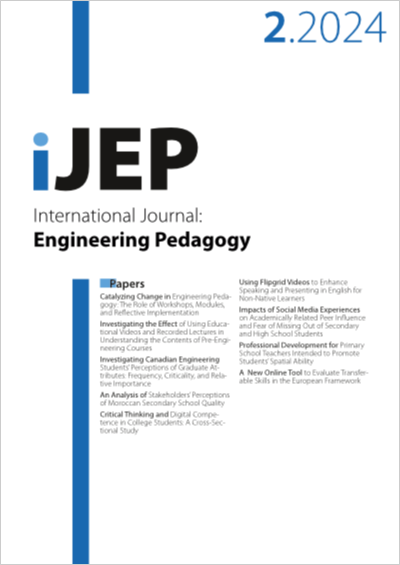Catalyzing Change in Engineering Pedagogy
The Role of Workshops, Modules, and Reflective Implementation
DOI:
https://doi.org/10.3991/ijep.v14i2.42449Keywords:
higher education pedagogy, engineering education, student response systems, higher-level thinking,, big ideas, question-asking techniques, discrepant events, professional development programsAbstract
This paper presents the implementation of a professional development program that aims at enhancing instructional practices to foster student-centered teaching approaches among engineering faculty at two universities in Pakistan. The program was guided by the theoretical perspective of enactivism and involved an initial three-day workshop, online modules, and reflective implementation assignments. The paper provides a detailed account of the program’s framework, design, and evaluation. The research questions addressed are: What are the perceptions of faculty members regarding (a) the benefits of the program topics and (b) changes in their actions as a result of the program? Likert-item survey instruments with retrospective items were analyzed using descriptive statistics and paired t-tests. As the program moved from being required to voluntary, participation was declined. Faculty who participated in this engineering pedagogy project reported positive attitudes and significant growth in utilizing student-centered strategies. The three-day workshop was perceived as the most beneficial of the components. The module was perceived to be of the highest benefit when focused on writing effective questions for high-level thinking. All the pre-to-post retrospective items showed statistically significant increases, with the two largest being the use of student response systems (SRS) and the focus on big ideas in teaching. The combined approaches show promise for faculty who persist in long-term professional development projects, catalyzing changes in perceived value and the implementation of active learning techniques.
Downloads
Published
How to Cite
Issue
Section
License
Copyright (c) 2024 PETER RILLERO, Hy G. Rillero

This work is licensed under a Creative Commons Attribution 4.0 International License.


